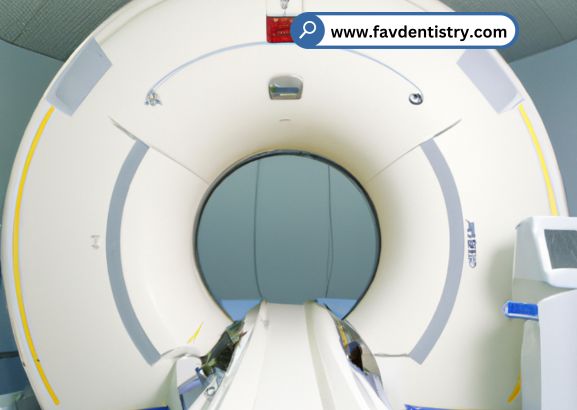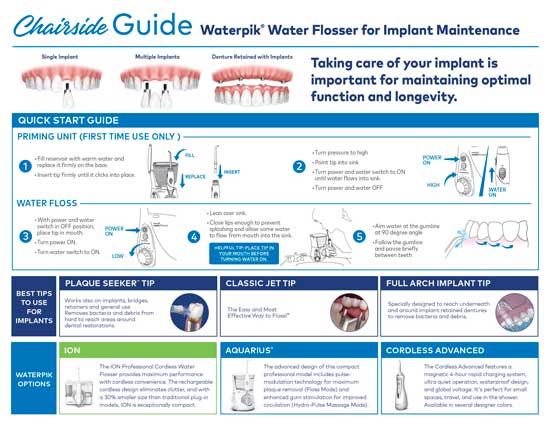Last Updated on 2 weeks by Dr. Michelle G. Brito
Yes, you can have a CT scan with dental implants. Dental implants are compatible with CT scans and do not interfere with the imaging process.
Dental implants have become a popular option for replacing missing teeth because of their durability and natural look. However, many people wonder if having dental implants will affect their ability to undergo a CT scan. The good news is that you can still have a CT scan even if you have dental implants.
Dental implants are made of materials that are compatible with CT scans and do not interfere with the imaging process. This means that you can still benefit from the diagnostic capabilities of a CT scan, whether it is for dental or medical purposes, even if you have dental implants. In this article, we will explore why dental implants do not affect CT scans and provide you with more information about dental implants and their compatibility with medical imaging.
The Role Of CT Scans In Dental Implant Planning
CT scans play a crucial role in the planning of dental implant treatments. These scans have revolutionized the way dentists assess and place implants. The use of CT scans offers numerous benefits for dental implant planning. One of the key advantages is the ability to obtain accurate and detailed imaging.
This aids in understanding the patient’s unique anatomy and provides valuable insights into the placement of implants. By using CT scans, dentists can make informed decisions regarding implant size, location, and orientation. This level of precision enhances the success rate of dental implant procedures and reduces the risk of complications.
CT scans are an essential tool in dental implant planning, ensuring optimal treatment outcomes and patient satisfaction.
Understanding Ct Scans: How They Work

CT scans are a standard diagnostic tool used in dentistry. These scans provide detailed images of the oral cavity, allowing dentists to evaluate the placement of dental implants. By using a series of X-rays, CT scanners create cross-sectional images that reveal bone density, nerve pathways, and the overall structure of the mouth.
This technology revolutionized dental implant planning and placement, ensuring more accurate and successful procedures. CT scans are non-invasive and painless, making them a preferred method for assessing dental health. With the ability to capture high-resolution images, dentists can carefully analyze the jawbone and surrounding structures, making informed decisions for implant placement.
Understanding the basics of CT scans will help patients feel more comfortable and informed throughout the dental implant process. So, if you have dental implants, rest assured that you can indeed have a CT scan to ensure optimal results.
Advantages Of CT Scans For Dental Implant Placement
CT scans are highly advantageous for dental implant placement. They aid in precise implant positioning, enhancing treatment predictability. Through better planning, they also reduce risks and complications associated with the procedure. CT scans provide clear and detailed images, ensuring an accurate assessment of the patient’s underlying bone structure.
This helps the dental team determine the ideal location for implant placement, taking into account factors such as bone density and available space. With this advanced technology, dental professionals can achieve optimal results and minimize potential risks. By using CT scans for dental implant placement, patients can expect a more prosperous and efficient procedure, leading to greater satisfaction with their new dental implants.
Uncovering Hidden Challenges With CT Scans
CT scans are commonly used in dental implantology, but there are potential limitations and challenges to be aware of. One challenge is the presence of dental implants, which can cause artifacts and distortions in the images. Another limitation is the inability to accurately assess bone density around the implants.
Strategies to overcome these challenges include using specialized CT protocols, such as metal artifact reduction techniques, and combining CT scans with other imaging modalities, like cone-beam computed tomography (cbct). By leveraging these strategies, the benefits of CT scans can be maximized in dental implantology, allowing for improved treatment planning and outcomes.
Dental professionals need to understand these limitations and employ the necessary techniques to ensure accurate and comprehensive assessments when using CT scans with dental implants.
Ct Scan Vs. Traditional Imaging Techniques
CT scans have become the go-to imaging technique for dental implant procedures. The superiority of CT scans over traditional imaging methods is apparent. CT scans provide detailed, high-resolution images that allow for better planning and placement of dental implants. Unlike conventional methods, CT scans capture images in 3d, providing a comprehensive view of the patient’s oral cavity.
This level of accuracy is crucial in determining the ideal position and angle for implant placement. By using CT scans, dentists can ensure precise and successful implant procedures, minimizing any potential complications. Gone are the days of relying solely on traditional imaging techniques for dental implant planning.
CT scans offer a more advanced and accurate approach, revolutionizing the field of implant dentistry.
Ct Scans: A Comprehensive Implant Planning Tool
CT scans are a vital tool for comprehensive implant planning. They offer additional insights by enabling accurate assessment of bone quality and quantity. These scans also help evaluate sinus and nerve proximity, ensuring the safety of the implant procedure. With CT scans, detailed images provide a clear understanding of the patient’s unique anatomy, aiding in precise treatment planning.
By analyzing the bone structure, dentists can determine the most appropriate implant size, location, and placement technique. This helps achieve optimal outcomes and reduces the risk of complications during the procedure. Moreover, CT scans assist in identifying any potential limitations or challenges that may arise.
Overall, incorporating CT scans into implant planning ensures a more prosperous and predictable outcome for patients with dental implants.
The Importance Of Cbct For Guided Implant Surgery
CT scans are possible even with dental implants. Cbct plays a crucial role in guided implant surgery. It enhances the accuracy and success rates of the procedure. Through cone beam ct (cbct), the dentist gets detailed 3d images of the patient’s oral structures.
This aids in virtual implant planning and the creation of surgical guides. Cbct helps determine the ideal implant position, angle, and size, resulting in a more precise treatment plan. With virtual implant planning, the dentist can visualize the outcome before the surgery, ensuring better predictability.
Surgical guides, fabricated using cbct scans, assist in accurately placing the dental implants at the planned positions. This technology revolutionizes implant dentistry, optimizing outcomes and reducing the risk of complications. Cbct’s numerous benefits make it an invaluable tool in guided implant surgery.
The Future Of CT Scans In Dental Implants
CT scans are becoming increasingly valuable in dental implant procedures. The technology has advanced dramatically, allowing for more precise and accurate results. These advancements have opened up a world of possibilities for future applications in dentistry. With the ability to capture detailed 3d images of the mouth, CT scans can aid in the planning and placement of dental implants.
In the future, we may see further improvements in scan quality and faster image processing, leading to even better outcomes for patients. This progress in CT scan technology is revolutionizing the field of dentistry and providing more options for those considering dental implants.
As the future unfolds, we can expect even more exciting advancements that will continue to enhance these procedures.
Frequently Asked Questions On Can You Have A CT Scan With Dental Implants
Can Dental Implants Interfere With A CT scan?
Dental implants are typically made of titanium, which is not magnetic and does not interfere with CT scans. However, it is essential to inform your radiologist about your implants before the scan to ensure proper imaging and avoid any potential complications.
How Do Dental Implants Affect CT Scan Results?
Dental implants may cause some artifacts or distortions on CT scan images, particularly around the area of the implants. However, experienced radiologists can still interpret the scans accurately by considering certain adjustments and techniques to compensate for these artifacts.
Is It Safe To Have A CT Scan If You Have Dental Implants?
Yes, it is generally safe to have a CT scan with dental implants. The titanium material used in dental implants is not affected by the radiation of the CT scan. However, it is crucial to inform the radiologist about your implants beforehand to ensure the best possible imaging and minimize any potential risks.
Conclusion
Having dental implants does not exclude you from getting a CT scan. Dentists and radiologists are well aware of the presence of dental implants and take necessary precautions during the scanning process. Thanks to advancements in technology, CT scans can be performed without compromising the integrity of dental implants.
The images obtained from these scans are crucial for accurate diagnosis and treatment planning, ensuring that your dental and overall health are addressed effectively. It is essential to inform your healthcare provider about your dental implants before the procedure, as they may offer specific instructions or recommendations.
With regular check-ups and proper care, dental implants can function optimally while coexisting with other medical procedures. So, if you need a CT scan for any reason, rest assured that it can be done safely and efficiently without causing harm to your dental implants.





